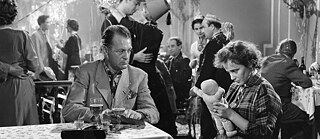Homecoming Films

02/10–02/24/2022
Anthology Film Archives
32 2nd AvenueNew York, NY 10003
USA
Details
Language: With English subtitlesPrice: $12 general admission, $9 students/seniors
gfo-newyork@goethe.de
Related links
Filmmakers leave home for many reasons. Sometimes the motives are purely professional – an ambition that outstrips the possibilities available in the national film industry that one happens to have been born in proximity to, ambition of the sort that took Englishman Alfred Hitchcock or Dutchman Paul Verhoeven to Hollywood. Other times, it is a matter of opposition to a political regime, a response, voluntary or forced, to political upheaval – most notably, in the 20th century, the cultural catastrophe wrought by the rise of Fascism prior to World War II, the installation of repressive Soviet satellite governments in Central and Eastern Europe, and the implementation of the Hollywood blacklist in the United States.
Filmmakers come home for many reasons. Sometimes the professional opportunities that lured them away in the first place begin to dry up as time passes and styles change and the phone stops ringing. Other times, it’s the hated regimes that change, the wounds of war that set to healing, as when a prosperous, post-Economic Miracle West Germany was suddenly able to lure its native talents home with new financial inducements. Or perhaps it is nothing so concrete, just the fortuitous confluence of the right story and a sentimental pull that’s enough to bring an artist back to a familiar landscape at a particular time in life, perhaps a vague desire to conclude one’s creative life where it began, and so to bring their story full circle.
There are a number of what might be termed “late films” here, but none of them show signs of fatigue. Whatever the case, wherever the place, the homecoming can act as a rejuvenating factor, an agent encouraging an artistic refocusing – or, for those who have long been out of work, a dam burst of pent-up creative energy, an exorcising of years of frustration, expressed in go-for-broke moviemaking that very often represents the work of big fish enjoying the clout they find in their small pond. This series collects films that exemplify these qualities: final testaments, retracings of steps, beginnings of second and third acts, new beginnings.
Guest-programmed by Nick Pinkerton. Co-presented by Anthology Film Archives and the German Film Office
Film program:
Jean Renoir, French Cancan (France, 1955, 105 min.)
Robert Siodmak, The Rats (West Germany, 1955, 91 min.)
Fritz Lang, The 1,000 Eyes of Dr. Mabuse (West Germany, 1960, 103 min.)
Luis Buñuel, Viridiana (Spain, 1961, 90 min.)
Orson Welles, Touch of Evil (USA, 1958, 111 min.)
Hugo Fregonese, Savage Pampas (Argentina, 1966, 112 min.)
Jonas Mekas, Reminiscences of a Journey to Lithuania (USA/Lithuania, 1971-72, 82 min.)
Adolfas Mekas, Going Home (USA/Lithuania, 1972, 61 min.)
Jan Němec, The Flames of Royal Love (Czechoslovakia, 1991, 87 min.)
Andrzej Żuławski, Szamanka (Poland, 1996, 110 min.)
Barbet Schroeder, Our Lady of the Assassins (Spain/France/Colombia, 2000, 101 min.)
Alfred Hitchcock, Frenzy (UK, 1972, 116 min.)
Paul Verhoeven, Black Book (Netherlands, 2006, 145 min.)